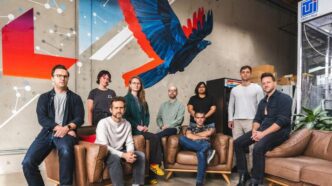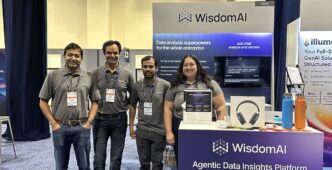FutureHouse, the nonprofit supported by former Google CEO Eric Schmidt, has launched its first suite of AI-powered tools aimed at accelerating scientific breakthroughs. The organization’s bold ambition is to build a fully functional “AI scientist” within the next decade. Its latest release marks a key milestone in that journey.
The launch includes four core AI agents—Crow, Falcon, Owl, and Phoenix—each tailored for specific research tasks. Crow is built to quickly search scientific literature and answer questions. Falcon dives deeper into academic databases for more exhaustive searches. Owl identifies prior research within a given field. Phoenix is designed to support the planning of chemistry experiments. Together, they form a modular system that FutureHouse believes can supercharge research productivity.
What sets FutureHouse apart from the crowd of AI-for-science startups is its deep integration of open-access scientific literature and purpose-built research tools. According to a company blog post, the AI agents follow a transparent reasoning process and apply multi-step evaluations when reviewing sources. By chaining these tools together, FutureHouse says researchers can dramatically cut the time it takes to move from question to hypothesis.
Despite the bold claims, FutureHouse hasn’t yet made a verifiable scientific breakthrough. The nonprofit acknowledges that its tools—especially Phoenix—are still prone to error. But rather than wait for perfection, the team is betting on community feedback and continuous iteration to refine the tools in real-world environments.
The push to integrate AI into science has been heating up. Tech giants like Google and startups backed by deep-pocketed investors are pouring resources into building AI tools that can augment human researchers. Google’s “AI co-scientist,” introduced earlier this year, is one example. Even CEOs of major AI firms like OpenAI and Anthropic have expressed optimism that these tools could revolutionize areas like drug discovery and materials science.
Still, skepticism remains high among many scientists. One of the biggest concerns is reliability. AI is notorious for “hallucinating” or confidently producing incorrect outputs. In a field that demands precision, even small errors can derail entire studies. A case in point: In 2023, Google claimed its GNoME AI helped synthesize 40 new materials. However, a later independent review concluded none of those materials were truly novel.
That kind of hype-to-reality gap has made the scientific community cautious. Researchers are eager for tools that can help narrow down complex questions or sort through massive datasets. But they remain wary of over-relying on systems that lack the nuance and intuition that often lead to groundbreaking discoveries.
For now, FutureHouse is leaning into transparency and collaboration. The group is openly inviting researchers to test its tools and share feedback. While its AI agents may not yet rival human scientists, the platform represents an early glimpse into what AI-augmented research could look like in the years ahead.
Whether this will truly lead to accelerated discoveries—or just more AI-generated noise—remains to be seen.













